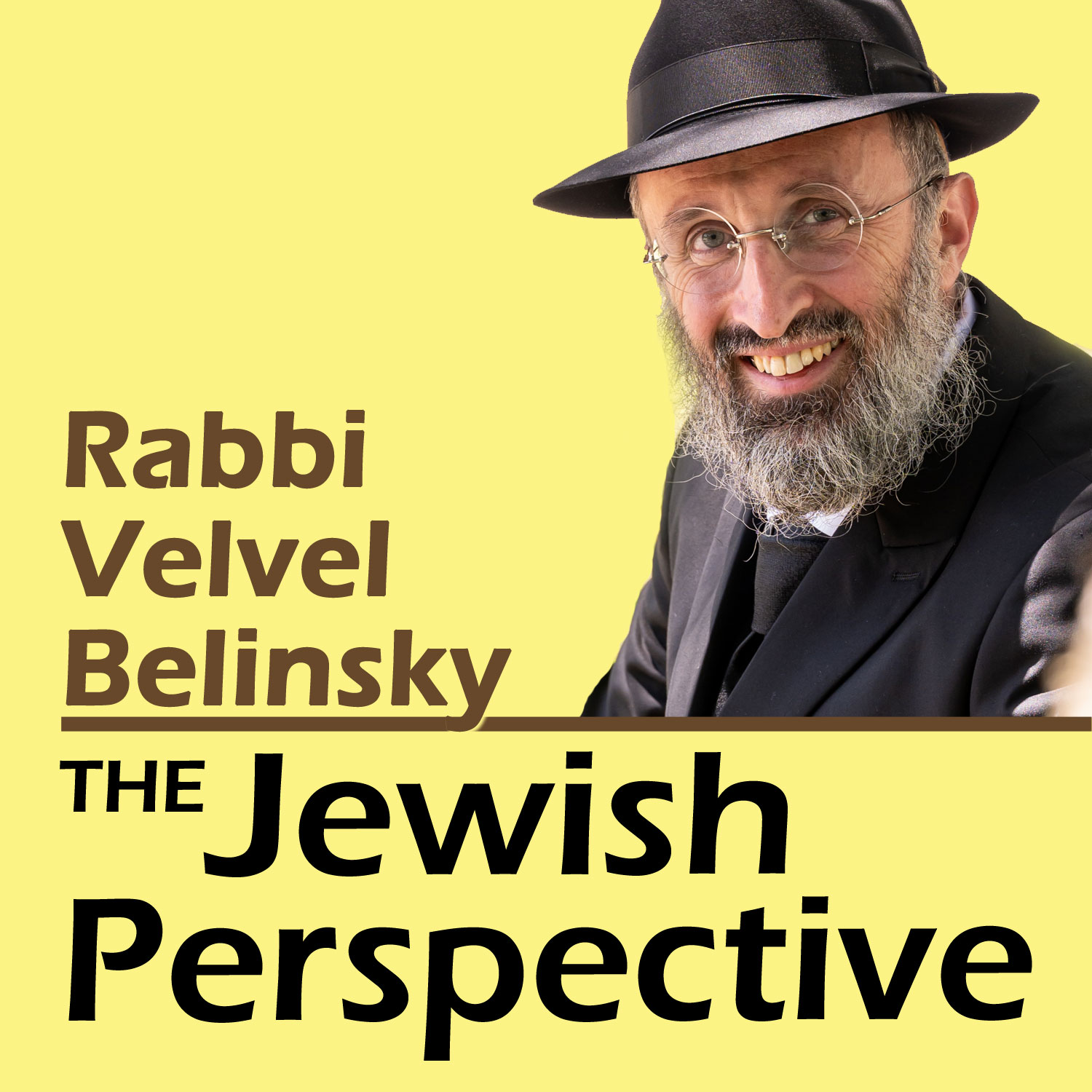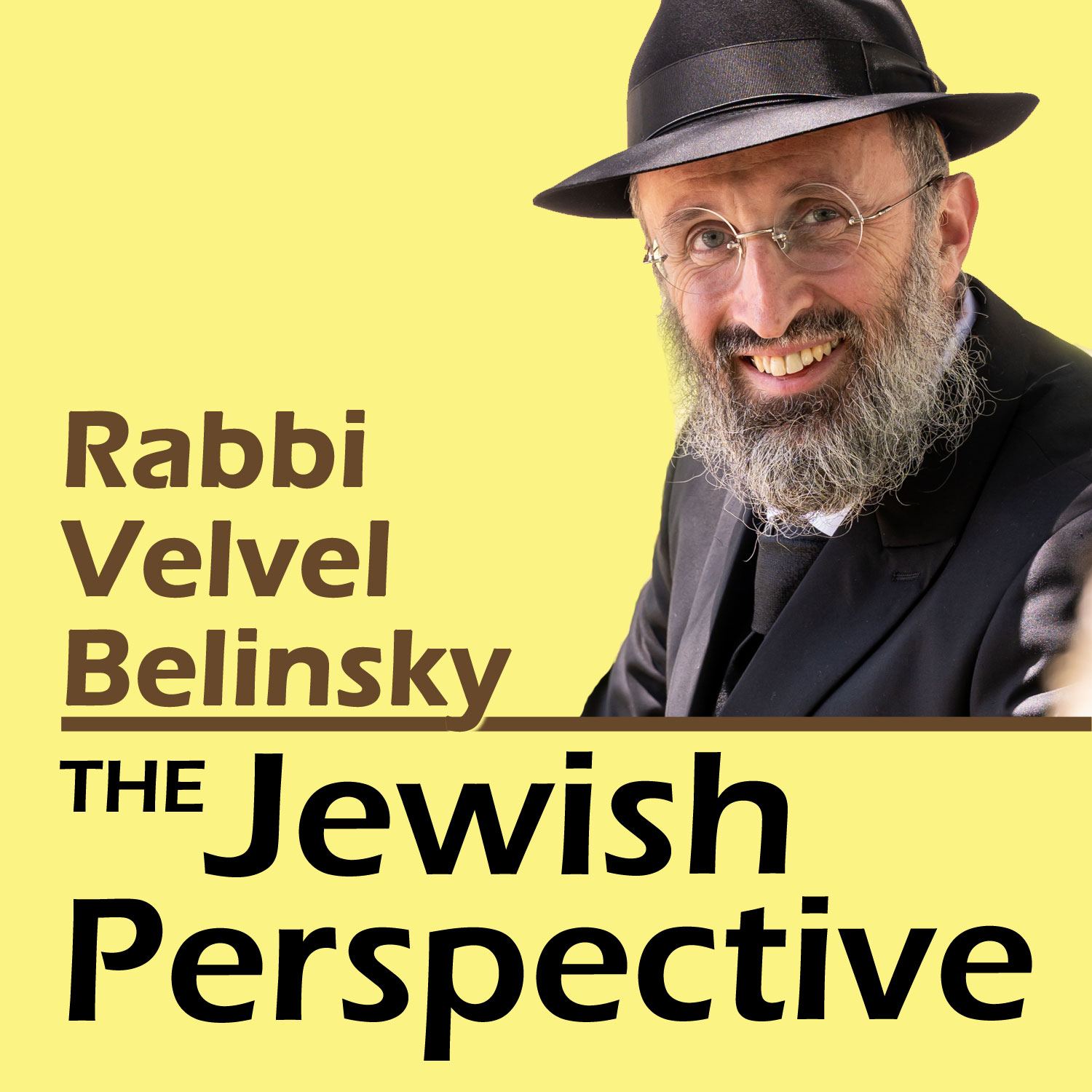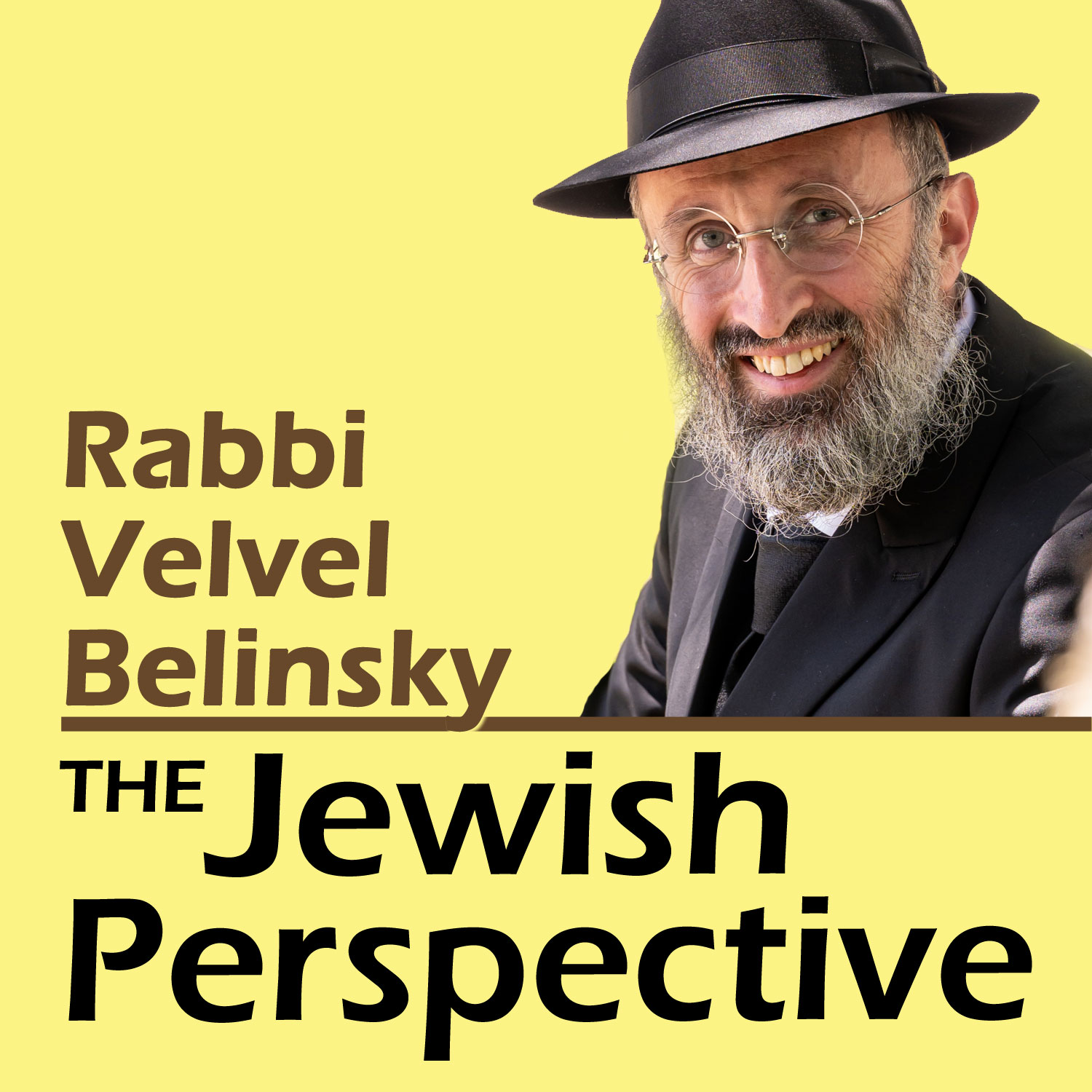Episode Transcript
[00:00:00] Let's say you decided to make yourself a matzah pill.
[00:00:06] You really don't want to have to chew matzah.
[00:00:11] So you take matzah, you grind it very, very small, and you put it into a capsule and you swallow it. Now, to fulfill the mitzvah of eating matzah, you have to eat quite a bit of matzah. It's like the shir is kizait, which is like 2/3 of this round matzah.
[00:00:31] So you would have to grind up, swallow quite a bit of these pills. But let's say you did it, you were dedicated enough, and you are sitting over here with a whole bunch of pills and you just pop them in your mouth one after another, and you fulfilled and you were able to swallow up the required amount of matzah.
[00:00:51] Did you fulfill the commitment of eating matzah on the eve of Pesach? The answer is you will fulfill. Because the mitzvah is to consume matzah and you consumed it. Next question. Maror, the bitter herbs that we have, horseradish or lettuce, let's say you do the same with them. You make maror pills, maror capsules, you grind them up and you swallow them. Because this maror tastes really, really bad. And if you can swallow it without having to turn all colors in the world and the coughing from your throat being burning, you swallow them up. And by the way, you also need to eat quite a bit of this maror, the same amount. So let's say you made enough maror capsules to swallow it up. Did you fulfill the commandment of eating maror? The reason why we eat the bitter herbs is because they're bitter. The idea is to feel the bitterness, to feel the taste. So if I'm swallowing up those maror pills, sorry, dude, you need to eat them. Chewing and feeling the burning in your mouth and your throat and turning colors and coughing, you have to do it. Why is there such a difference between matzah and maror? One would think that, well, if you have to do it by maror, matzah is for sure more important than maror. So matzah, you should have to chew and feel the taste as well. Well, the whole point of a matzah is it does not have a taste. Matzah is purposely made only with flour and water, and it's meant to be tasteless. Why is that? That's the whole point of matzah, not to have taste. You see, I want to be a great musician. Can I become a great musician if I Want to be a great musician? Well, if I have enough talents and if I work hard enough, I can become a great musician. I guess if I want to be a great musician, if I want to be a great real estate agent, well, if I want to do it, and I will be ready to put enough effort into it and I have enough skills for it, I can become a great real estate agent. Sounds good, right? Minus Friedman, a very famous lecturer. He specifically speaks a lot and writes a lot about family relationships, marriage, raising children, and he does a lot of counseling. Also. He says this guy comes to him and he says, robert Friedman, I want to be a good husband. Please teach me how to be a good husband. Marnie Friedman says, forget it, you'll never be. Not a chance. He says, what do you mean? I want to be a good husband? That's why you'll never be a good husband, because you want to be a good husband. Being a good husband is not about you.
[00:03:34] If I want to be a good husband, then my thoughts are about me. It's me. The definition of a good husband is that he is thinking about his wife, not about himself. How can I help my wife? That's what a good husband is thinking. How can I do something for my wife? That's what a good husband is thinking. How can I become a good husband? Who brought you into the equation here? It's not about you, it's about her.
[00:04:00] If I'm saying I want to be a good husband, it means I'm making this whole thing about me. If you making the whole thing about you, you'll never be a good husband. I can perhaps become a good musician if I want to be a good musician and I have enough skills. But you know what? The best musicians in the world were not people who wanted to become good musicians or great musicians. The best musicians in the world were the ones who were thinking about music and music only, not about themselves. As a matter of fact, you can see very often when people perform on a stage, if they're real artists, you see that they lose themselves. They're consumed by the music that they're playing or the poetry that they're reciting or they're. Or whatever they're doing, they forget about themselves. That's the whole point. If while I'm playing music, I'm thinking about how I'm a good musician, I might do the right things technically with my fingers and with sing the right notes and everything else, but it's not going to be real art. Real art is when people forget about themselves. And are totally consumed by whatever they're doing. And by the way, that's with every single relationship. As I said about the husband and the wife. Same thing with parents and children, same thing with the wife towards her husband. It's all the same. If your relationship with someone else is about you, it will never be a real relationship. Judaism is about our relationship with God. I once recently was teaching a class and there was a question that came up which was really not directly connected with the topic. And the lady asked me about the importance of doing mitzvot. And I said just in passing, Judaism is not about doing mitzvot. Judaism is about our relationship with God. Mitzvot just happened to be the only way how we can accomplish it. Just like your relationship with your wife or with your husband buying flowers for your wife, even though she asked you to buy flowers. But when you buy her flowers, you're not doing it for the sake of flowers, you're doing it for your wife. Flowers happen to be the way how you do what she appreciates. When you buy her a present for a birthday, it's not about the present, it's about her present just happened to be there. So mitzvahs just happened to be there. It's the only way to create a relationship with God. I'm sorry, there's no any other way. Just like if you want to create a good relationship with your spouse, you better buy them present for their birthday. You know, that's kind of expected.
[00:06:14] So if you want to have relationship with God, you better do what he wants. That's expected.
[00:06:18] But it's not about the present, it's not about the mitzvahs. It's about God.
[00:06:23] So sometimes we make a mistake of making our relationship with God about mitzvahs. It's not about mitzvahs. Sometimes making mistake of making a relationship with God about ourselves. It's not about ourselves either. If I want to be a good Jew, I'll never create a real relationship with God because it's not about me. Is what God. This is what matzah is. The whole point of matzah, not to have a taste. Taste means appreciation. As a matter of fact, in Hebrew word taste is ta' am, which is the same word as reason. Taste is the reason why we eat food. If I have food without any taste, I really don't have any real reason to eat it. That's a very good point. Nutrients, we understand, help us.
[00:07:07] I don't feel it immediately as I eat it. Taste. I appreciate taste as I am Eating something, there is positive reasoning and negative reasoning. Like if I am yelling at my son to clean up his room, I'm creating a negative reasoning for him to clean up his room. If I'm telling him that when you clean up your room, I will give you a prize that's created. Positive reasoning. When I eat food for its taste, it's positive reasoning. When I eat food because I'm hungry, it's negative reasoning. I'm running away from my feeling of hunger. I'm not running towards anything. I'm running away from my feeling. It's a negative reasoning. As a matter of fact, the Torah says negative reasoning. It's not real reasoning. Because it comes back to our previous point. If I'm eating my food because I'm starving and I'm eating it even though it tastes terrible, I'm not doing it because of the food. I'm doing it because of my hunger pains. It's not about the food anymore. It's about my hunger pains. The reason why I'm eating is not in the food. The reason why I'm eating is in my hunger pains. If I'm eating any type of food because it tastes good, the reason why I'm eating it is in the food.
[00:08:15] So my reason is the taste. My understanding of something is ta' am, that Hebrew says taste. So matzah doesn't have any taste. Why? Because if it would have taste, it would be about me. I would be eating it for my own gratification. But that's the whole point. It's not about you. Matzah is celebrated because we are now dedicating ourselves to God. It's not about me anymore. I have a relationship with God, and it's about him, not about me. Maror is about me because I have to feel the bitterness of the Jews that they experienced when they were in Egypt. Maror is about me. Every other ritual might be also about me. Matzah. The whole point of matzah, it's not about me. That's why also, matzah is flat, it's humble. We know that matzah has exactly the same ingredients as bread, flour and water. The most basic bread is just flour and water. I know that nowadays they add 1861 other ingredients and preservatives and chemicals that you can pronounce. But the original bread is just flour and water. So what is the difference between the this matzah and this bread? They have exactly the same ingredients. Well, the bread has same ingredients, but then it's soft, which means it has A lot of air in it. It's full of hot air. Bread makes it everything about himself. That's why bread is pleasant, relaxing to eat. So bread is about itself, Matzah. That's the whole point. That's why it's so flat. It's not about itself. So when we are celebrating Pesach, we are thanking God for the miracles he did for us. That makes us humble. We become like Matzah. And we understand that God took us out of Egypt for a specific reason. The reason is to go to Mount Sinai to receive the Torah. And we are saying, God, we are creating this relationship with you. It's not about us, it's about you. Whatever you tell us, we'll do. Wherever you lead us, we'll go. This is why when Jews came to Mount Sinai, God says, I have the Torah for you. God said that they're committing themselves to keeping it even without knowing what's in there. Said yes. It's like just an analogy. The same Manus Friedman says that whenever he speaks to people, he sees a reaction from people. He tells the same episode. And the reaction depends on whether people understand who the Rabbi is or people don't have understanding who the Rabbi is. There are Jews who are learned Jews, and maybe they know about the Lubavitcher Rebbe, but they don't really understand who he is.
[00:10:42] This is what he says. The Rebbe once called my mother. He says, if the person doesn't really understand who the Rebbe is and what the Rebbe is, the next question is, and what did he say? That's not the point. The point is the Rebbe picked up a phone and called my mother. What he said is already secondary. It doesn't matter what he said. How many people did the Rebbe pick up a phone and call personally? The Rebbe once called my mother. He says, so the very fact that rabbi calls somebody in itself, big deal. What he says, we could discuss later. We come to Mount Sinai, God says, I have something for you.
[00:11:15] God has something for us? Yes. What it is, we'll figure out later. The answer is yes, but that's the point. This is because we have the ability to be like Matzah. And this lesson, we re enact Exodus every single year to have this appreciation of matzah, which makes us not to have appreciation of ourselves.


